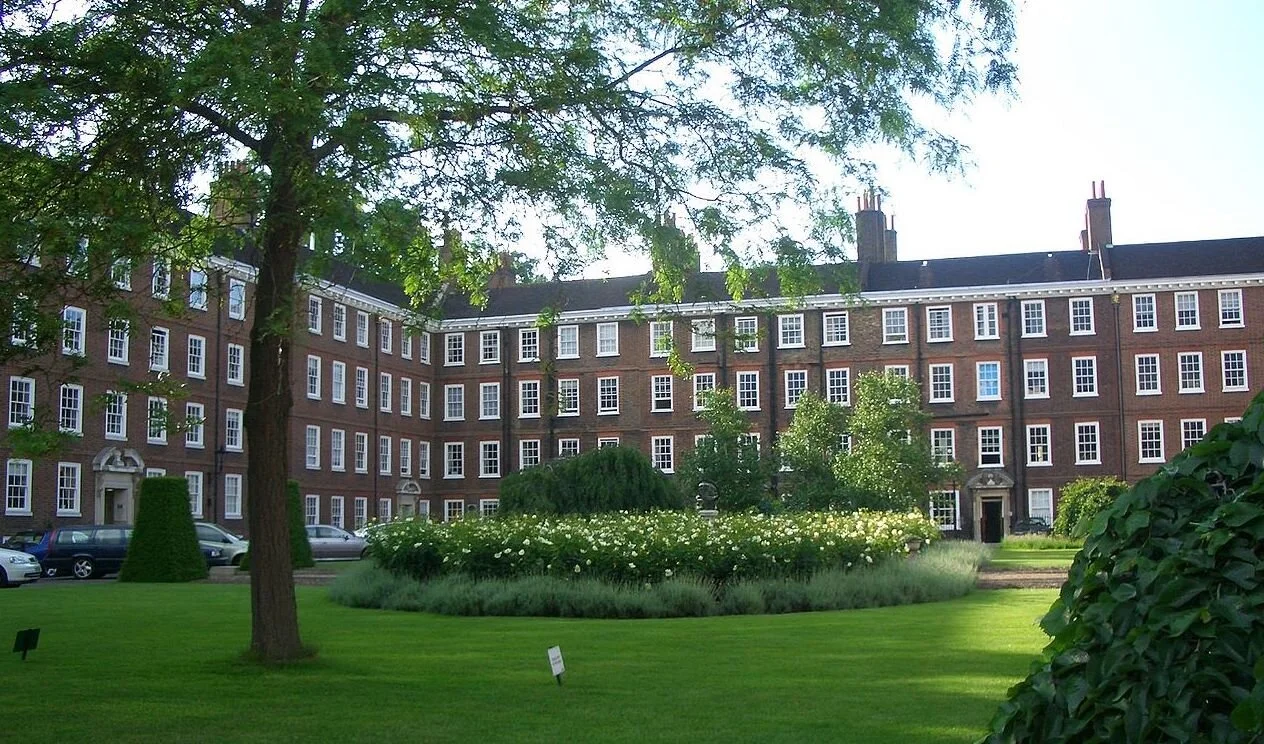Glasgow PhD Candidate awarded Gray’s Inn Scholarship
Connor McBain is an alumnus of the School’s accelerated LLB (Scots) and currently in his third year of a PhD in international law. He also tutors Constitutional Law on the LLB. Once his PhD is completed, Connor intends to call to the Bar of England and Wales. Here, he shares his early experience of applying for admission to the Inns of Court, the four bodies responsible for the training of barristers in England and Wales.
I was recently awarded the Tatjana Finkelstein Scholarship from Gray’s Inn, one of the four Inns that regulate admission to the English Bar. The scholarship is intended to fund my completing the Graduate Diploma in Law (GDL), the necessary academic component for calling to the Bar in England if one has not studied an LLB there*.
The process of applying for admission to an Inn begins with electing which one to apply to. There are four Inns: Gray’s Inn, Lincoln’s Inn, Inner Temple, and Middle Temple. This is an important choice because you are only allowed to apply for a scholarship from one Inn. I chose Gray’s for a number of reasons. For example, I learned while attending the Gray’s Inn Advocacy Day that it is the smallest Inn and places a significant emphasis on collegiality amongst members. It also has an incredibly attractive training programme for student members during the twelve ‘qualifying sessions’ one must undertake to be eligible for calling to the Bar. I knew also prior to the Advocacy Day that Gray’s has a historic association with international law, which was an important consideration for me given my research profile. The application process proceeds in three stages: a written application submitted at the end of April, which is then followed by an interview of those shortlisted. If an award is forthcoming, the scholar can then apply for a means-tested ‘top up’ of the minimum amount.
The written application is useful to clarify and then explain why one wants to be a barrister. For example, I have been interested in the notion of becoming a barrister since mooting on behalf on Bond University (Australia) during my undergraduate degree. There, I developed most of the essential skills that carried me through my later studies. This experience was further honed representing Glasgow and University of Helsinki in international moots. As I entered my PhD, I initially abandoned the idea of becoming a barrister in favour of an academic career. However, tutoring Constitutional Law during Brexit, while also observing the oral arguments in both of the Miller Cases, altered my perception of what I could and should do with my PhD once it was completed. I became increasingly aware that as much as I enjoyed immersing myself in international law daily, I also had other career interests. What I had enjoyed about mooting, international law, legal realism and everything else covered in those years of study was not so much a given field of law, but the activity of taking up an unfamiliar position and trying to advance it through studying existing arguments and the ‘rules’ of the game so to speak. My gratitude to those at Glasgow who helped me realise that and supported my application to Gray’s, namely Dr Rasulov and Professor Mullen, is considerable.
After the written application, I was shortlisted for interview. It took place via zoom on account of the restrictions placed upon society as a consequence of COVID-19. I was asked to prepare an argument in response to a pre-determined question. After presenting that argument, I was then asked a series of different questions about my experiences and intentions at the Bar. There is no straightforward way to prepare for these, but the Inns do provide a number of useful documents in terms of the type of questions that may be asked. Twitter is also a useful tool to learn of the experiences of those who have interviewed the previous year.
After being notified of my award, the subsequent weeks were overtaken by a flurry of forms and further applications, notably for exemptions from aspects of the GDL on account my having studied them during my LLB at Glasgow. As of time of writing, I have obtained exemptions from the Bar Standards Board for Public Law, Contract, Tort, EU Law, and Criminal Law on the basis of my LLB from Glasgow. I have commenced the outstanding components of the GDL (online and part-time) with the University of Law, which I will complete alongside my PhD.
Following the GDL, the next stages on the route to becoming a barrister are the Bar Professional Training Course (BPTC) and a pupillage (a twelve-month period of training in chambers). Fortunately, as I learned on Advocacy Day at the Inn, being awarded a GDL scholarship from Gray’s guarantees an interview for the BPTC scholarship. I have already benefited from my membership of the Inn in terms of professional development through a six-week masterclass in international commercial arbitration and I look forward to participating in the numerous other opportunities the Inn has to offer.
Those students at Glasgow whom are considering entering into practice at the English Bar and wish to know more anecdotal experience about the process of applying to an Inn are more than welcome to contact me at g.mcbain.1@research.gla.ac.uk. The following websites may be of some use as well:
Gray’s Inn Scholarships ‘How to Apply’ Page:
https://www.graysinn.org.uk/scholarships/how-apply
Bar Standards Board’s Bar Qualification Manual:
* It is worth noting those students who have undertaken courses in English Law as part of their LLB studies are likely to be entitled to exemptions from the academic component/list of foundational courses. Those interested should contact the Bar Standards Board for advice as to their own situation early on so that they are aware of the costs and time involved in seeking admission to the Bar of England and Wales.
~ Connor McBain
Photo credit: Gray’s Inn by Chensiyuan / CC BY-SA (http://creativecommons.org/licenses/by-sa/3.0/)


